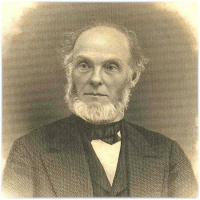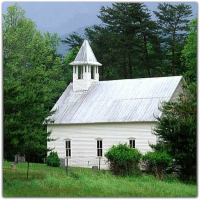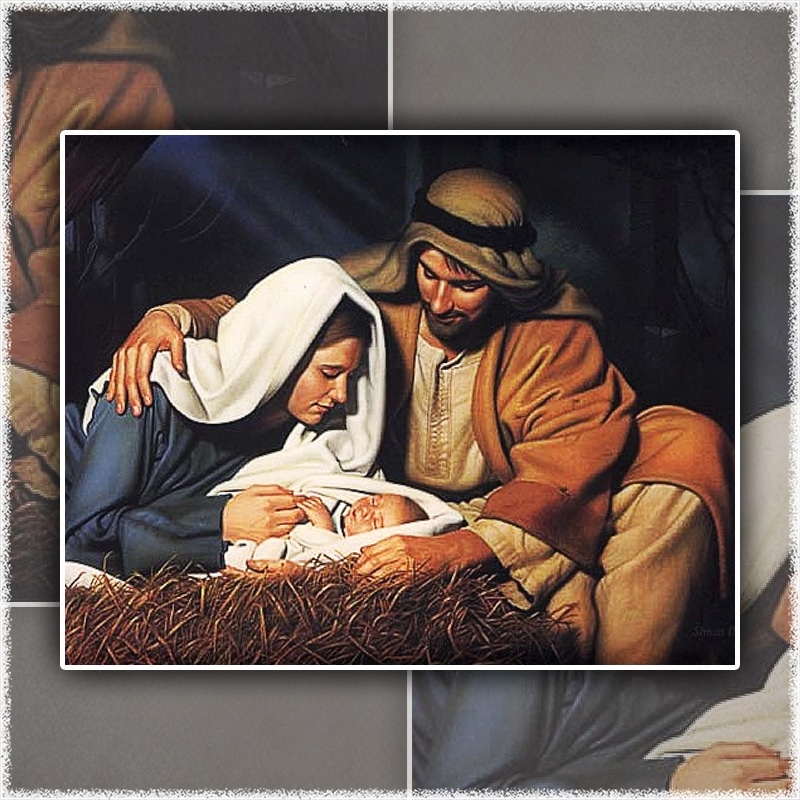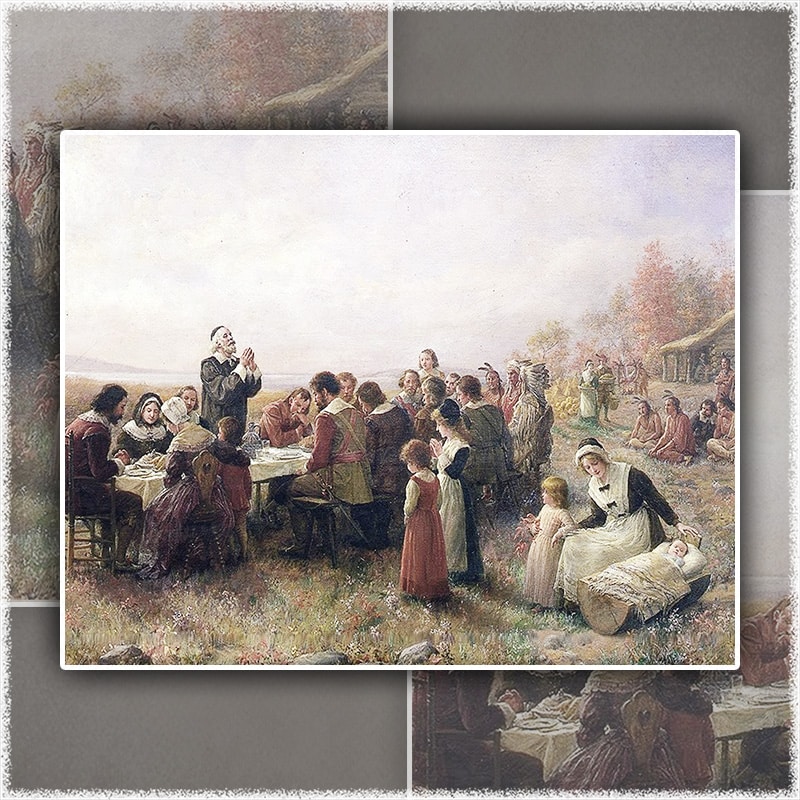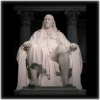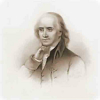John Wesley on the Sabbath
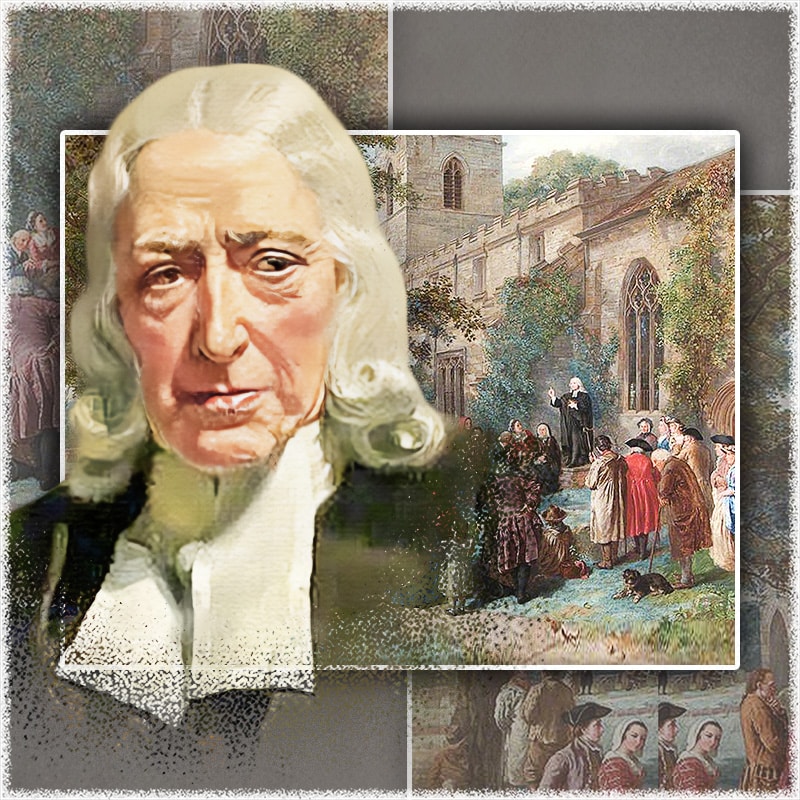
Both early British and American Methodism were deeply concerned with the observance of the Lord’s Day, or the “Sabbath.” It is impossible to read early Methodist materials without being struck with the level of concern which the movements leaders had for this subject. It is hoped that the following sermon, “On the Sabbath,” by John Wesley will raise the appreciation for its subject in the minds and hearts of its readers. It may be noted that the sentiments concerning the Lord's Day as advocated by this sermon were in harmony with generations of Americans prior to the end of the twentieth century. His sermon on the subject appears in full below.John Wesley on the Sabbath
On The Sabbath
By John Wesley
Exodus 20:8
In the twentieth chapter of Exodus, at the eighth verse, it is thus written:
Remember the Sabbath day, to keep it holy.
"That the sabbath was not ordained in the beginning of the world, nor ever observed from the creation till the time of Moses; that being given by Moses to the Jews, it was not observed as a moral precept, but like other ceremonies was sometimes kept and sometimes not, as public or private business gave way; that, lastly, it was for ever repealed at the destruction of the temple"—these are the assertions of those who would so remember the sabbath as not to keep it holy at all.
In answer to so much of these objections as seems to require an answer, and to the conclusions drawn from them, I shall endeavor to show:
First, That the command for keeping the sabbath holy was given for wise ends, by such an authority that none but the same which gave it can repeal it;
Second, That it has not been repealed by this authority, as the ends for which it was given are still in force; and,
Third, What that keeping the sabbath holy is, by which we obey this command and answer the ends of it.
First, The first thing to be shown is that the command of keeping the sabbath holy was given for wise ends, by such an author[ity] that none but the same which gave it can repeal it. I dispute not here whether or no this command was given to Adam, nor whether it was observed before Moses; nor yet whether we are to keep the sabbath upon the seventh day, as was the practice of the Jews, or on the first day of the week, according to the usage of the Christian church from our Lord's resurrection to this day. My present inquiry is only this: What authority commands us to keep one day in seven holy? And what were the chief ends for which this command was given?
1. The authority by which it was given was God's. He it was who from the holy place of Sinai spake all those words, among which are these, "Remember the sabbath day, to keep it holy." He it was who declared again and again, "Verily my sabbath ye shall keep; . . . it is holy unto you; everyone that defileth it shall be put to death."
Now who but God hath power to repeal what God hath once established? Seeing then it was he who established this law, none but himself hath power to repeal it. Till he repeals it, it must be the duty of all men to obey it, whether the reasons for which he hath established it are known to them or no. An abundantly sufficient reason for their obedience is this alone, that he gave it, if they know no other. Not that this is the case here. The wise reasons of this command are, or may be, known to all men; the chief ends of it are almost everywhere delivered, together with the command itself.
[2.] The first we have in the second chapter of Genesis, verse 3: "And God blessed the sabbath day, and sanctified it, because that in it he had rested from all his works which God created and made." And again in the twentieth chapter of Exodus: "In six days the Lord made heaven and earth, and all that in them is; wherefore the Lord blessed the sabbath day, and hallowed it."
In these words three things are plainly affirmed: (1), that God is the creator of the world; (2), that having created it in six days he ceased from his work on the seventh; (3), that hereon he blessed the seventh day, and hallowed, or sanctified, it, ordaining that man, being made in the image and for the imitation of God, should imitate him in this, in bestowing six days on the works pertaining to this world, and resting from all these works on the seventh, to retire to a better world.
We see here the chief reason of this command, the great end for which it was given, even that man might learn to imitate God, to fulfill the purpose of his creation; that he might ever remember who it was that created himself, and heaven and earth; that like him, having finished his six days, he might on the seventh retire from this world, and ascend in heart and mind into the heaven of heavens, whither his Creator went in person before him.
[3.] Another end of this command God declared both on Mount Sinai and long after by his prophet Ezekiel: "I gave them my sabbaths, . . . that they might know that I am the Lord which sanctifieth them." That these sacred days, so often as they returned, might confirm them in that important knowledge, that God was the author of their virtue and happiness as well as of their being; that should he withdraw his sanctifying power they would as naturally sink into sin and misery as, should he withdraw his quickening power, they would fall into their native dust.
[4.] That as they knew how holiness was to be attained, so they actually might attain it, was a third wise end of God's commanding man to keep one day in seven holy. This we learn from that other declaration of God, wherein after "Ye shall be holy, for I the Lord your God am holy," it follows in the very next verse, "Ye shall keep my sabbaths"; plainly intimating that one reason why they were to keep his sabbaths was that they might be holy as God is holy; that by constantly dedicating to him one day in seven they might be enabled to spend the other six as became those who acknowledged their Creator and Sanctifier to be of purer eyes than to behold iniquity; that they might ever be mindful of taking him for their pattern, not only in one particular, but in the general course of their lives, which after his example should be holy, just, and good.
The sum of what has been hitherto observed is this: God, who hath an undoubted right to command men what he pleases, and is under no obligation of acquainting them with the reasons of his commands, was pleased to give them this command, "Remember the sabbath day, to keep it holy." Nay, and was also pleased to acquaint them with several of the reasons that moved him so to do, the chief of which are these: (1), that man, by imitating one particular action of God, might retain a more lively and lasting sense of God's being the Creator, of himself and all things; (2), that he might constantly remember who it is that is his Sanctifier as well as Creator; (3), that he might be ever mindful that it is the business of his life to imitate him in all things; to make God's mercy, justice, and holiness the pattern of all his thoughts, words, and actions.
Second, The next question, therefore, is whether this command has yet been repealed by the authority that gave it, and whether these ends for which it was given are still in force or no.
1. As to the former part of the question, it is roundly affirmed that God did repeal it when he was made man; to prove which a famous manager in this controversy gives us the strength of his cause in these words:
In these rigid vanities by which the Pharisees had abused the sabbath, our Saviour thought it requisite to detect their follies. They taught, [ . . . ] it was unlawful on the sabbath day either to heal the impotent, or relieve the sick, or feed the hungry; but he confutes them in them, both by his actions and by his disputations. . . . Did they accuse his followers of gathering corn upon the sabbath, being an hungered? He lets them know what David did in the same extremity. . . . The cures he did upon the sabbath, what were they more than what themselves did daily in laying salves upon those infants whom they had circumcised on the sabbath? His bidding of the impotent man to take up his bed, was it so great a toil as to lift up the ox out of the ditch? . . . Nor had God so spoke the word but that he could repeal it, the Son of man being Lord also of the sabbath. Nay, it is rightly remarked that he did more works of charity upon the sabbath than on all days else; and several of them when there was no extreme necessity that the cure should be performed that day, or the man perish. . . . What then? Came our Saviour to destroy the law? No—but to let them understand the right meaning of it, that they might no longer be misled by the Scribes and Pharisees. . . .
[Further,] that the sabbath was to be repealed is by this apparent, (1), that it was an institute of Moses; (2), that it was an institute peculiar to the Jewish nation.Thus far the historian, whose numerous assertions it may be worth while to examine apart, beginning at that wherewith he ends, as being of most importance.
"The sabbath (says he) was to be repealed because it was, (1), an institute of Moses; (2), an institute peculiar to the Jewish nation." Now as every institute peculiar to the Jewish nation was an institute of Moses, all we have to do is to inquire whether the sanctifying the sabbath was an institute of Moses or no.
I therefore think it was not, because it was instituted at least two thousand years before Moses was born. So saith the text in Genesis expressly: "Thus the heavens and the earth were finished and all the host of them. And on the seventh day God ended his work which he had made; and he rested on the seventh day from all his work which he had made. And God blessed the seventh day, and sanctified it."
Indeed, so soon as it shall be proved that there is an absurdity in taking this in the plain literal sense, then we shall be forced to take it in a less plain, in a figurative sense, and to say, "Though this is related as done at the creation, it was not done till the giving of manna in the time of Moses, four or five and twenty hundred years after the creation." But till this absurdity be shown we have no pretense for giving up the letter. We have no pretense to interpret any Scripture figuratively but when an absurdity follows a proper interpretation. This not being the case here, we may, we must, conclude that the sabbath was instituted at the creation; therefore that it was not an institute of Moses; and consequently that from this supposition, which is manifestly false, it cannot be inferred that it was to be repealed at all.
[2.] However, that it actually was repealed is inferred from the other assertions above mentioned, which are briefly these: (1), that the Pharisees thought it unlawful to do even works of necessity or mercy on the sabbath; (2), that our Saviour proved they thought wrong therein, such works being lawful on any day; (3), that the Son of God, being man, could, if he pleased, set aside his own command; (4), that himself did more works both of necessity and mercy on this than on any other day; and (5), that he came, not to destroy the law but to fulfill, to teach men its right meaning.
All and every one of these five propositions we allow to be perfectly true, and would be exceeding glad to know from which of the five we are to infer the conclusion. Are we to say, the Pharisees had wrong notions of the sabbath; therefore the sabbath is abolished? Or, our Lord proved their notions of it to be wrong; therefore it is disannuled? Or, God could if he pleased set it aside; therefore he did set it aside? Or, Christ did works of necessity and mercy on the sabbath, therefore we may do works that belong neither to necessity nor mercy? Or, lastly, the Son of man came to fulfill the law; therefore he destroyed this branch of it?
I hope it will not be thought an unpardonable presumption if, notwithstanding all these arguments to the contrary, I still conceive that God hath not yet repealed his command touching the sabbath; nay, and that he never will, till the Great Sabbath begins; both because he hath not done it yet, and because the reasons for which he gave it are still in full force, and must be so till the consummation of all things.
For, (1), to preserve in man a lively and constant sense of God's being the Creator of all things, this end of the sabbath must remain in full force so long as men remain upon the earth. This reason for keeping it can never be wanting so long as any of those creatures are living who, in spite of all methods used to prevent it, are so extremely apt to forget their Creator; who so readily lay hold of any pretense, nay, who are so willing without any pretense at all, if not to think that they are the work of chance or their own hands, at least to act as if they did think so.
And the second end of the sabbath can no more cease than the first. That man should be constantly and deeply sensible that he can no more sanctify than he could create himself must ever be of the last importance. It must ever be of the highest concern to men to remember that they are unable to help themselves; to keep the impression of this great truth ever strong upon their minds, that he who is born of a woman must be born again of God, or it is impossible he should please him.
3. It must ever be of equal concern to men to remember that it is the business of their lives to imitate God. I presume no one will be so hardy as to affirm that this end of the sabbath has lost any of its force; that it does not hold full as strongly at this day as it did on the birthday of the creation. It being therefore clear that God hath given this command, and that he hath not repealed it, and [that it is] sufficiently probable that he never will, since the ends of it must ever be in full force, all that remains is to show,
III. Thirdly, what it is to keep the sabbath holy, so as to obey this command, and answer the ends of it.
To keep either a day or a place holy is plainly this, to set it apart to religious uses. This is both the proper and the common sense of the word. By saying "This day or this place is kept holy," both the learned and unlearned mean, it is dedicated to God, it is appropriated to his service. And to unhallow or profane a holy place or day is, not to set it apart to those uses; to use it in the same manner with other things which are not dedicated to God, not appropriated to his service; to perform on the holy day or in the consecrated place the works of ordinary days and unhallowed places.
To keep the sabbath day holy, as well in the proper as common sense of the word, is therefore to set it apart to religious uses, to dedicate it to the service of God. What is implied in this we shall easily see if we consider, (1), what we must; (2), what we may; and (3), what we may not do on it.
1. We must, if we will obey this command at all, and answer the ends for which it was given us, employ a considerable part of this day in praying to and praising God. We must retire with him from this lower world into those regions that are above the firmament. We must employ ourselves in thinking on the various works he hath made, and on the goodness, wisdom, and power of the Maker; and in talking of his marvelous acts, in telling the memorial of his abundant kindness—that branch of his kindness, in particular, whereby he daily renews the face of the earth, whereby he restores lost man to pardon and peace, and gives him the second, better life of holiness. That this his last, noblest gift may not be in vain, we must now especially work together with him; we must labour to conform ourselves to his likeness, to be holy as he is holy. We must make it our peculiar business to perfect his image in our souls, to bind mercy and truth about our neck, to write them deep on the tablet of our heart.
2. Not that our mind need be every moment intent upon this; that might make even devotion a burden. No—we have bodies as well as souls; and this our Lord considered, though the Pharisees did not. He therefore took away that intolerable severity wherewith their traditions had loaded the sabbath, and made it of none effect but to hinder those ends for the furthering of which it was ordained. He brought it back to its original standard, to its just and natural extent. Accordingly both his words and his actions showed that we may do works of necessity and mercy on this day; that we may do whatever cannot be done on another day, or not without manifest inconvenience, such as giving ourselves decent and proper recreation; as feeding and watering of cattle—for this is a work of necessity; that we may relieve our sick or hungry neighbour—for this is a work of mercy.
3. This therefore we may do. But we may not do any other work on the sabbath. We may not do any manner of work therein which neither necessity nor mercy requires. We may not do any work which can be done on another day, and done without much inconvenience, the delaying of which a day longer would not give either to ourselves or our neighbour much loss or pain.
Neither may we use any such recreation on the sabbath as does not further the ends for which it was given us. Some recreation is therefore allowed on this day, because few minds are of so firm a temper as to be able to preserve a cheerful devotion, a lively gratitude, without it. It is therefore a proper work of necessity so far as it conduces to these ends. But we may not therefore go farther; we may not use such kinds of recreation, or any in such a degree, as does not conduce to these ends, as does not enliven our devotion and quicken our gratitude. Here is a short and sure rule: all such recreation as helps devotion we may use; all such as hinders or does not help this great end of its institution, we may not use on this day.
The case is just the same as to the day as to the house of God; and for this reason doubtless it is that God more than once mentions them together: "Ye shall keep my sabbaths, and reverence my sanctuary." We are not to reverence the sanctuary of God so much as not to show mercy, not to save life therein; we may likewise do necessary works there, such as cannot be done elsewhere, or not without great inconvenience. But we may not do common works therein, much less use common diversions. The former actions are not at all contrary to its holiness; the latter unhallow, pollute, and profane it. And when either the temple or the Sabbath of God is made a day or a house of merchandise, it will not be long before truth itself will pronounce the one an abomination and the other a den of thieves.
If from what has been said it appears, (1), that this command, "Keep the Sabbath holy," was given to man by God, and that for wise ends, even to keep him duly sensible that God is his Creator, his Sanctifier, and his Pattern; (2), that as God has not yet repealed this command, so the ends of it are in full force; and, lastly, that the only way of keeping the Sabbath holy, of obeying this command and answering its ends, is to abstain from all diversions as well as works which neither necessity nor mercy requires, that we may set apart God's day for the service of God, which alone is to sanctify or keep it holy—then is the Sabbath no institution of Moses, neither is it peculiar to the Jews, but the command to observe it, as well as the reasons of that command, extend to all ages and nations. Then—if we cut away from it the additions of the latter Jews, and that one circumstance "Let no man go out of his place on the Sabbath day," wherewith God guarded it for a time from the disobedience of their stiff—necked forefathers—we may safely affirm of the Fourth Commandment, as well as of the other nine, Christ came "not to destroy, but to fulfill it; and till heaven and earth pass away, one jot or one tittle shall in no wise pass from this law till all be fulfilled."
Brethren, let me add one word of exhortation. And be ye assured of this, that those who watch over your souls as they that must give account will not willfully lead them out of the way. So that when you and we give up our great account, it will not increase your condemnation. If there be any here who will not be at the trouble of keeping the Sabbath holy, who says he cannot submit to the drudgery of worshiping God; who thinks prayer and praise, meditation and pious discourse, too heavy a burden to be borne a whole day, and so resolves to spend at least a part of this day either in diversions or business; I exhort all such, all who will do one, to work rather than play. I exhort you that are parents, in particular, if ye care not to train up your children in devotion, when they come from church not to send them to the streets or market—place, but rather of the two, to school. As to the innocence of either, it is no matter which you do—but to do the latter looks more like prudence. If ye do not care for the other world, yet why should you neglect this, too? Why should ye sell your own and your children's souls for nothing? Perhaps ye may get a little for them. As to the command of God, you throw that quite out of the question; that ye reject either way. Ye no more keep that day holy whereon ye play than whereon ye work. And as to the ends of it, ye destroy them alike, one way or the other. Ye are no more endeavoring to remember your Creator, to be thankful for his benefits, and conformed to his holiness, while ye unhallow his day by common diversion, than while ye do it by common work. But by the latter ye may gain something in exchange for your souls—you may perhaps get some money for your conscience. If ye lift up your hand against your God in labour rather than idleness, ye may have this comfort in your rebellion, that ye did not serve the devil for naught.
Not that those who serve God, who keep his day holy both from common work and diversions, have less reason to expect a reward from their Master, and even in the present world. For to these, who would not be wicked even to be rich, who love God even better than gain, to these thus saith God: "If thou turn away thy foot from doing thy pleasure on my holy day, and call the Sabbath a delight, holy of the Lord, honourable; and shalt honour him, not doing thine own ways, nor finding thine own pleasure, nor speaking thine own words; then shalt thou delight thyself in the Lord, and I will cause thee to ride upon the high places of the earth, and feed thee with the heritage of Jacob thy father; for the mouth of the Lord hath spoken it."[1]
America deserves to know its true heritage.
Please contribute today!
[1]Wesley, Sermons (Bicentennial Edition), #139.

